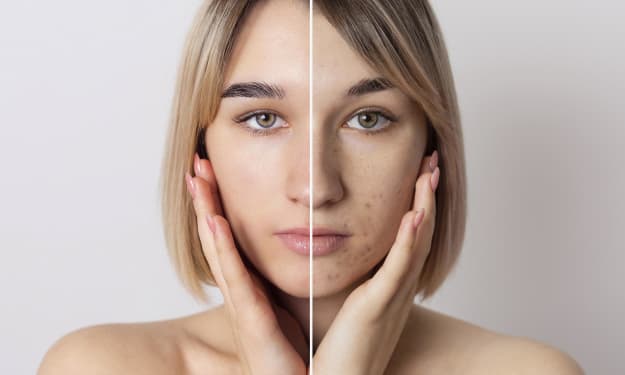The Dangers of Mouthwash: Protecting Your Oral Health
Understanding the Risks and Taking a Holistic Approach to Oral Hygiene.

The Importance of Oral Health and the Risks of Using Mouthwash: A Comprehensive Guide
Maintaining good oral health is vital for not only a beautiful smile but also for overall health and well-being. Regular brushing and flossing, combined with routine dental check-ups, can help prevent tooth decay and gum disease.
However, while mouthwash is commonly used to freshen breath and kill bacteria, it may also have some unexpected consequences. In this article, we will explore the importance of oral health, the risks associated with mouthwash use, and what you can do to protect your oral health.
The Importance of Oral Health:
Your mouth is home to millions of bacteria, and while some are beneficial, others can cause harm. Maintaining good oral hygiene helps to control the levels of harmful bacteria and prevent gum disease, tooth decay, and other oral health problems.
Good oral health is also linked to overall health and well-being, as poor oral hygiene has been associated with several chronic diseases, including heart disease, diabetes, and Alzheimer's. Additionally, bad breath, yellowed teeth, and gum disease can affect self-esteem and social interactions.
The Risks of Using Mouthwash:
While mouthwash is marketed as a way to freshen breath and kill bacteria, it may also have some unexpected consequences. Some of the risks associated with mouthwash use include:
Alcohol Content: Many mouthwashes contain high levels of alcohol, which can be drying to the mouth and contribute to bad breath. Additionally, alcohol-based mouthwashes can be irritating to the gums, causing them to become red, swollen, and bleed.
Antibiotic Resistance: Overuse of mouthwash that contains antibiotics can lead to the development of antibiotic-resistant bacteria. This can make it more difficult to treat oral health problems and other infections in the future.
Cancer Risk: Some studies have suggested that regular use of mouthwash that contains alcohol may increase the risk of developing certain types of cancer, including oral, pharyngeal, and esophageal cancer.
Disrupting the Oral Microbiome: The mouth contains a complex and delicate balance of bacteria, and using mouthwash can disrupt this balance. This can lead to a range of oral health problems, including bad breath, gum disease, and tooth decay.
=> Avoid mouthwash dentists are saying (do this instead)
Protecting Your Oral Health:
To protect your oral health and minimize the risks associated with mouthwash use, it is important to take a holistic approach to oral hygiene. This includes:
Brushing and Flossing: Regular brushing and flossing are the best ways to remove plaque and food debris from your teeth and gums. This helps to control the levels of harmful bacteria and prevent oral health problems.
Eating a Balanced Diet: A diet that is high in sugar and processed foods can contribute to tooth decay and gum disease. Eating a balanced diet that is rich in fruits, vegetables, and whole grains can help to maintain good oral health.
Drinking Plenty of Water: Drinking water helps to flush out harmful bacteria and food debris from the mouth. It also helps to keep the mouth hydrated and reduce the risk of bad breath.
Using a Non-Alcohol Mouthwash: If you must use mouthwash, look for a product that is alcohol-free and contains natural ingredients, such as tea tree oil, that can help to freshen breath and kill bacteria without disrupting the oral microbiome.
In conclusion, oral health is an important aspect of overall health and well-being. While mouthwash can be useful in freshening breath and killing bacteria, it is important to be aware of the risks associated with its use, such as alcohol content, antibiotic resistance, cancer risk, and disrupting the oral microbiome.
To protect your oral health, it is important to take a holistic approach to oral hygiene, including regular brushing and flossing, eating a balanced diet, drinking plenty of water, and using a non-alcohol mouthwash if necessary.
If you have any concerns about your oral health, it is best to speak to your dentist, who can provide personalized recommendations and treatment options. Remember, taking care of your oral health today can help prevent serious health problems and improve your quality of life in the future.
About the Creator
Luth Espindola
"Unlock a world of knowledge and explore new perspectives with every read. Join us now."






Comments
There are no comments for this story
Be the first to respond and start the conversation.